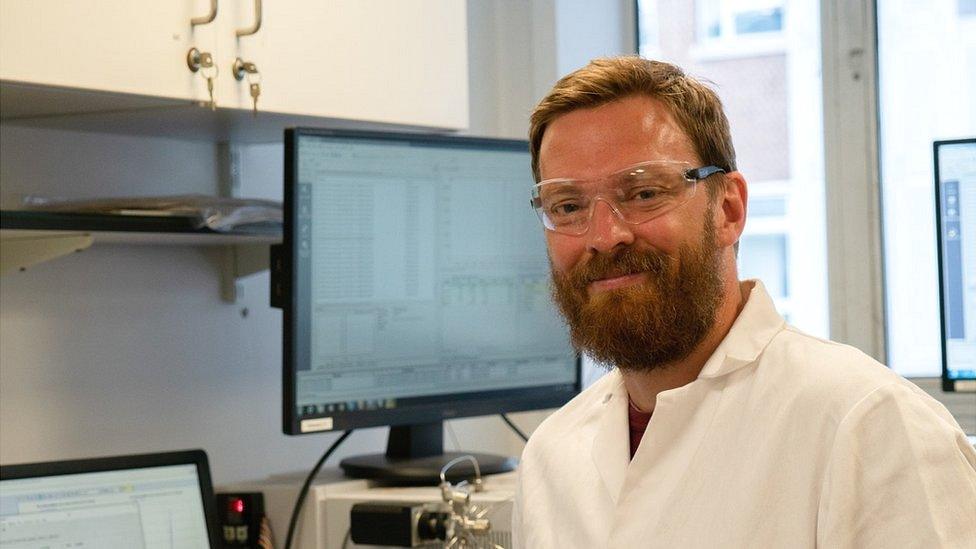Cambridge University scientists create fuel from 'artificial leaves'
- Published

Researchers said tests on the River Cam showed they could convert sunlight into fuels as efficiently as plant leaves
Researchers have developed floating "artificial leaves" that generate clean fuels from sunlight and water.
The University of Cambridge researchers said they took inspiration for the ultra-thin, flexible devices from photosynthesis, the process by which plants convert sunlight into food.
They said tests on the River Cam showed, external they could convert sunlight into fuels as efficiently as plant leaves.
It is hoped they can reduce the use of fossil fuels in the shipping industry.
The university said it was the first time clean fuel had been generated on water.
It said, if scaled up, the artificial leaves could be used on polluted waterways, in ports or even at sea, and could help reduce the global shipping industry's reliance on fossil fuels - something which Prof Erwin Reisner's research group in Cambridge has worked to address for a number of years.
In 2019, they developed an artificial leaf but it incorporated thick glass substrates and moisture-protective coatings, which made the device bulky.
In the latest development, they have trimmed down the materials to be light enough to float.
"Artificial leaves could substantially lower the cost of sustainable fuel production, but since they're both heavy and fragile, they're difficult to produce at scale and transport," said Virgil Andrei, from the university's chemistry department.

Erwin Reisner, a professor of energy and sustainability at Cambridge University, said the "leaves" had been trimmed down while not affecting their performance
"We wanted to see how far we can trim down the materials these devices use, while not affecting their performance," added Prof Reisner, who led the research.
"If we can trim the materials down far enough that they're light enough to float, then it opens up whole new ways that these artificial leaves could be used."
The research was supported in part by the European Research Council, the Cambridge Trust, the Winton Programme for the Physics of Sustainability, the Royal Academy of Engineering, and the Engineering and Physical Sciences Research Council.

Find BBC News: East of England on Facebook, external, Instagram, external and Twitter, external. If you have a story suggestion email eastofenglandnews@bbc.co.uk, external